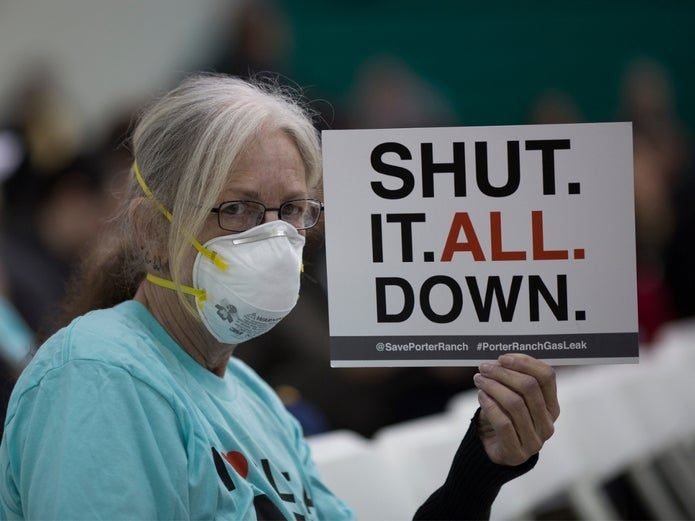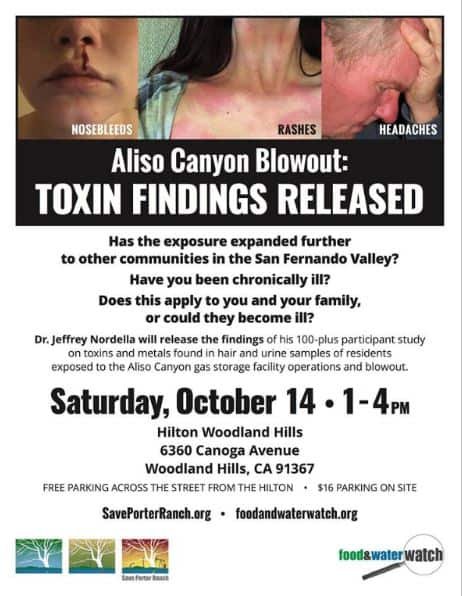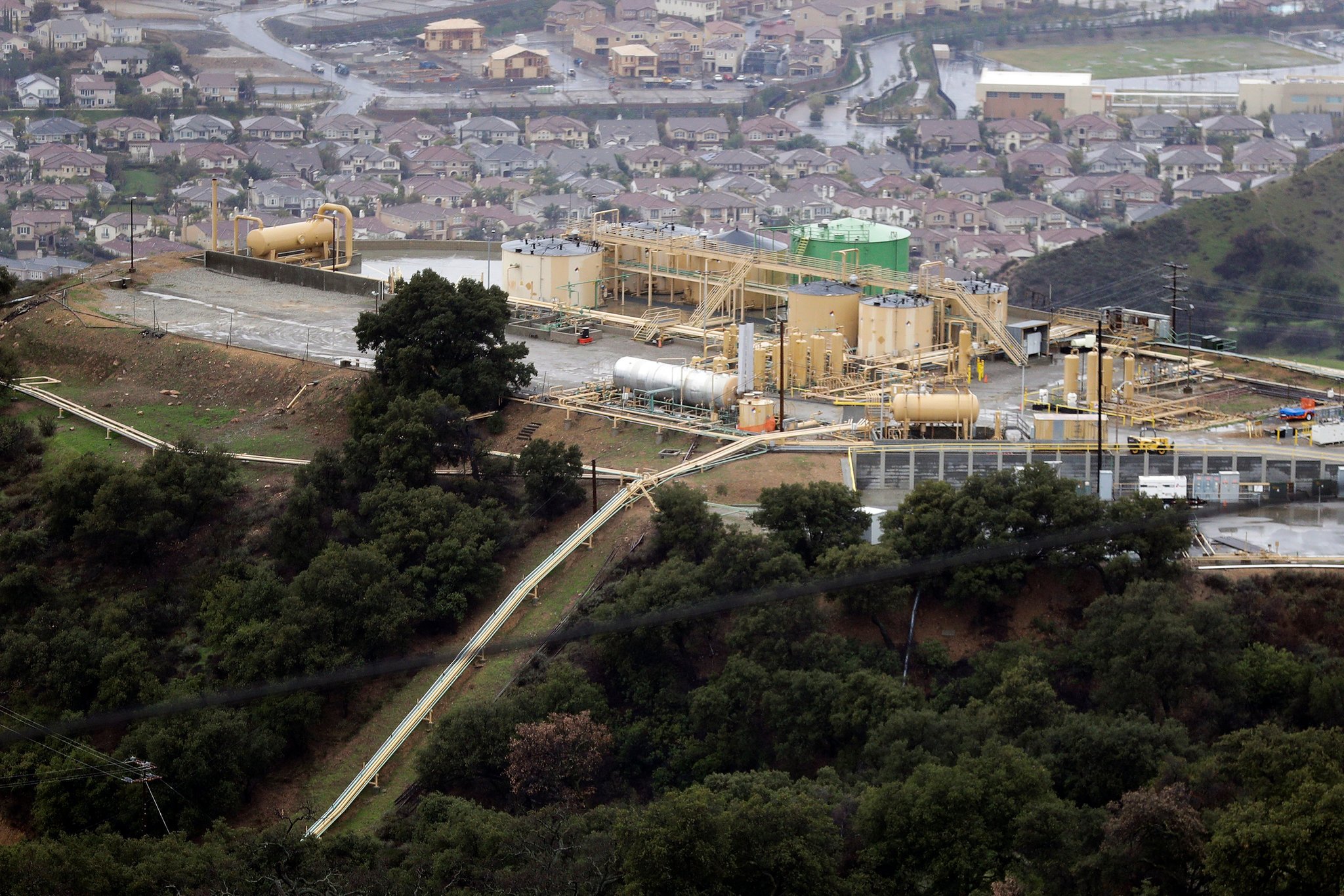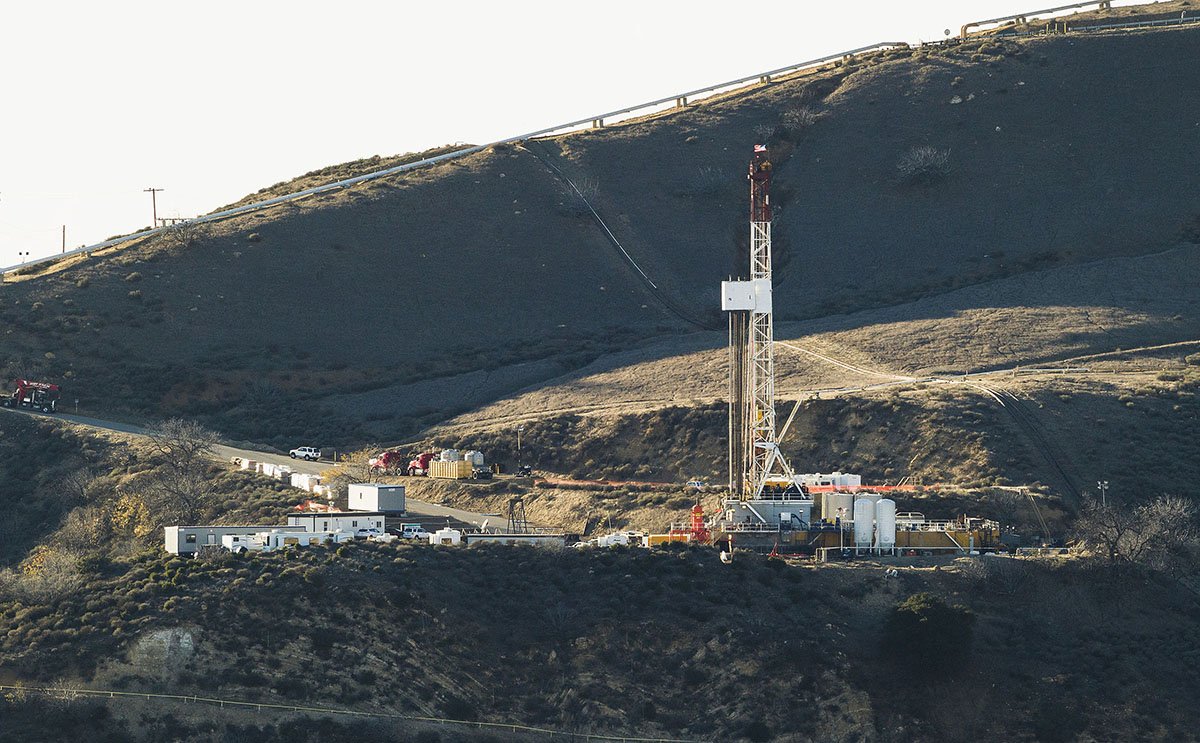The Los Angeles City Council voted 14-0, with one member absent, on Wednesday to call for the permanent closure of the Aliso Canyon Natural Gas Facility in Porter Ranch, the site of the largest methane leak in U.S. history in 2015.
Councilmember John Lee, who represents the area that continues to be affected by leak, reintroduced a Dec. 2019 resolution urging Gov. Newsom and the state legislature to take steps, including urging the California Division of Oil, Gas, and Geothermal Resources and the California Public Utilities Commission, to accelerate a plan for the permanent closure of the Aliso Canyon Natural Gas Facility.
The passage of the resolution signifies the City of Los Angeles’ support for legislative and regulatory efforts to reduce the need for, and eventually decommission, the facility.
The resolution also requests that state agencies provide quarterly updates on the status of the plant’s closure.
“In order to ensure the safety of City residents and to preserve the environment it is critical that the State follow through with the permanent closure efforts for the Aliso Canyon Natural Gas Storage Facility,” the resolution reads. “The natural gas blowout revealed deficiencies in regulatory oversight, including well inspection, emergency preparedness, and the responsibility for associated costs including mitigation efforts.”
The gas leak was discovered at the underground storage facility in the hills north of Porter Ranch in October 2015, and continued to emanate methane until February 2016. The facility leaked about 97,1000 metric tons of methane and 7,300 metric tons of ethane, according to the resolution. Thousands of residents were forced to leave their homes for months. In the following years, numerous reports have demonstrated the adverse health effects the facility causes, including cancer, headaches, fatigue, “brain fogs,” and nosebleed, among others.
“I lived 250 feet [from the facility], and I was a healthy person with no history of cancer, but the blowup changed my life forever,” Kyoko Hibino, founder of the activist group Save Porter Ranch, said during Wednesday’s meeting. “I was diagnosed with breast cancer six months ago. We still smell gas chemicals burning regularly here – we now know we have been exposed to carcinogens harmful to our bodies.”
A report commissioned by the California Public Utilities Commission and the state’s Division of Oil, Gas, and Geothermal Resources found that the leak was caused by microbial corrosion of a well casing, and that SoCalGas did not conduct detailed follow-up analyses after previous leaks.
The report identified more than 60 casing leaks at the facility before the 2015-16 leak, but found that SoCalGas did not conduct any failure investigations. The effects of the leaks are exacerbated by the fact that the facility lies on an earthquake fault line, yet no comprehensive seismic evacuation plan is yet in place, according to the resolution.
The California Attorney General initiated a lawsuit against SoCalGas, and in February 2019 the company agreed to pay a total of $119.5 million in penalties and mitigation efforts. Part of the settlement included a $25 million research study, but three neighborhood councils in the San Fernando Valley, as well as the Community Advisory Group, which is charged with facilitating the study, have expressed no confidence in its methodologies.
The groups charge that the study is overly broad, and focuses too much on environmental risk assessment, rather than studying the effects of the leak on people and their health, according to a report in the Los Angeles Daily News.
“As long as this dangerous facility remains open, we are getting poisoned more every day,” Patty Glueck, co-founder of Aliso Moms, said during the meeting. “The City Council needs to tell the governor that a timeline for closing this facility needs to be established, and sooner than 2027, because for many of us, this is a health and safety crisis.”
Councilmember Lee said that during the call that closing the methane gas facility is also a part of the city’s goal to battle climate change by switching to 100% renewable energy.





